Department of Social Services License Defense
We Are California’s Best Department of Social Services (DSS) Defense Attorneys
The attorneys at Ray & Bishop, PLC, defend child care providers, preschools, RCFEs, individuals excluded from licensed facilities, and many other state-licensed facilities from DSS discipline. If you receive an Accusation from DSS, call our attorneys for a consultation immediately.
California’s Child-Care Homes Are Among the Most Heavily Regulated Facilities in the State
If you are a day care provider, a preschool owner, or the manager of any kind of care facility for children or dependent adults, you know how stringent the requirements are for keeping your facility in good standing with DSS. Licensing Program Analysts (LPAs) visit sporadically, but when they conduct site visits they have sweeping authority to require changes and to issue citations for non-compliance. Here are the most common issues for child-care providers and other DSS-regulated facilities:
Allegations of Misconduct or Abuse: Day care providers are sometimes falsely accused of child-abuse or corporal punishment. When these allegations surface, DSS sends a team of regulators to the facility to conduct interviews, sometimes in violation of the rights of the accused. Providers are also responsible for keeping the home safe from dangers and from dangerous children. Our attorneys have particular experience in counseling providers who have so-called “problem children” who may pose a danger to other children in their facility.
Conduct Inimical and Personal Rights Violations: The most serious allegations that DSS can allege are violations of a child’s personal rights, which apply to children at every licensed facility at all times. They include the following:
(1) To be accorded dignity in his/her personal relationships with staff and other persons.
(2) To be accorded safe, healthful and comfortable accommodations, furnishings and equipment to meet his/her needs.
(3) To be free from corporal or unusual punishment, infliction of pain, humiliation, intimidation, ridicule, coercion, threat, mental abuse, or other actions of a punitive nature, including but not limited to: interference with daily living functions, including eating, sleeping, or toileting; or withholding of shelter, clothing, medication or aids to physical functioning.
(4) To be informed, and to have his/her authorized representative, if any, informed by the licensee of the provisions of law regarding complaints including, but not limited to, the address and telephone number of the complaint receiving unit of the licensing agency and of information regarding confidentiality.
(5) To be free to attend religious services or activities of his/her choice and to have visits from the spiritual advisor of his/her choice. Attendance at religious services, either in or outside the facility, shall be on a completely voluntary basis. In Child Care Centers, decisions concerning attendance at religious services or visits from spiritual advisors shall be made by the parent(s), or guardian(s) of the child.
(6) Not to be locked in any room, building, or facility premises by day or night.
(7) Not to be placed in any restraining device, except a supportive restraint approved in advance by the licensing agency.
When any child or any parent alleges that these rights have been violated, DSS considers that conduct to be “inimical” to the health, safety, and well-being of children — in other words, it places the child at risk of harm. It is critical to protect yourself from allegations of this type.
At the Investigation Stage: Licensees are required to fill out an Unusual Incident/Injury Report whenever any aggressive act, violation of rights, or other emergency occurs. DSS will attempt to discipline based on a failure to fill out a report even if the licensee calls the police to report the incident. Early intervention from an attorney can stop problems before they start. The Department’s provided reporting form is called LIC 624, and it requires a mandatory report for aggressive acts, alleged violation of rights, alleged client abuse, injuries, epidemics, hospitalizations, theft, fire, property damage, and other events. Licensees must report the date, time, location, perpetrator, nature of indicent, and a detailed narrative of how clients were affected.
Citations and Appeals: The Department has two types of violations that can result in citations for a facility — Type A and Type B violations. If a site visit results in a citation, it will be listed on the Facility Evaluation Report that is provided to the licensee after the conclusion of the site visit.
Type A deficiencies are violations of the regulations and/or Health and Safety Code that, if not corrected, have a direct and immediate risk to the health, safety or personal rights of clients in care.
Type B deficiencies are violations of the regulations and/or the Health and Safety Code, that, without correction, could become a risk to the health, safety or personal rights of clients, a recordkeeping violation that would impact the care of clients and/or protection of their resources, or a violation that would impact those services required to meet the clients’ needs.
In the event of a citation, the process can be somewhat difficult to understand for the licensed provider. A citation that is “accepted” by the licensee and later “cleared” through corrective action does not disappear from the licensee’s record. In fact, that citation will later be brought as evidence against the provider if the Department decided to seek discipline for a future violation. It is not uncommon for the licensee to assume that earlier violations are “no big deal” because they were fixed after an LPA brought them to the attention of the provider or the staff.
Did You Know?
- The Department of Social Services alleges every type of action on the same pleading, called an Accusation. This is different from all other agencies, which use different terminology for license denials and exclusion actions. Citations, denials, revocation actions, and all other proceedings are just called “Accusations”.
- Each DSS attorney has a slightly different way of handling disciplinary matters that cross their desk, including transmittal of discovery, hearing dates and times, witness and evidence requirements, and possible resolution through settlement. It is critical to have an attorney familiar with DSS matters.
- Criminal record exemptions can be requested by the facility or by an individual.
Know Your Rights
- You have a right to have an attorney in any DSS proceeding.
- You must contact DSS in addition to law enforcement if an unusual incident occurs, but you should also contact an attorney to protect yourself.
- The Administrative Procedure Act guarantees a fair hearing before a neutral judge if the Department seeks license discipline.

Address:
4100 Newport Place Dr., Suite 670
Newport Beach, CA 92660
Disclaimer
**Attorneys are only licensed to practice law in California. Attorneys’ offices are only located in California. However, pursuant to United States Code of Federal Regulations 8 C.F.R. § 1.2 and United States Code 5 U.S.C. § 500, Attorneys may practice Federal Administrative Law and represent an individual located outside of California within the parameters of Federal Administrative Law. Attorneys will NOT advise clients on the laws of any State or any State law legal matters (with the exception of California). The information on this website is for general information purposes only. Nothing on this site should be taken as legal advice for any individual case or situation. This information is not intended to create, and receipt or viewing does not constitute, an attorney-client relationship. Legal advertisement.**

